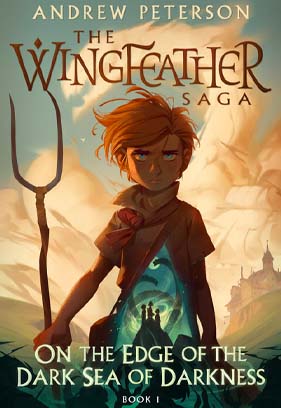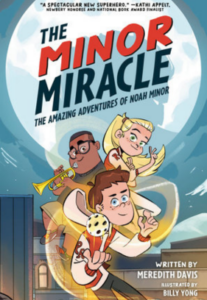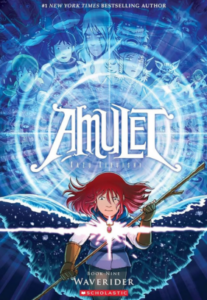If there’s one thing that keeps 12-year-old Janner Igiby up at night, it’s the thought of the Black Carriage; a dreadful coach that arrives at night with the thud of horse hooves, the jangle of chains and the caw of circling crows. The dark conveyance carries off unfortunate victims—usually human children—at the will of the Fangs of Dang.
These lizard-like horrors crossed the Sea of Darkness and conquered all of humankind in the land of Skree. Now they rule with a heavy claw and whisk away children for any whim or reason they may have.
Only last week, Janner had heard whispers about a girl named Sara, the same age as himself, who was taken. One night she was lying in bed, after probably kissing her parents goodnight and saying her prayers, and then the Black Carriage came for her.
Had she been awake? Janner isn’t sure, but it keeps him up at night.
Janner, his thin and wiry brother Tink, and his little sister, Leeli, all live with their mother, Nia, and grandfather Podo. They make up an average-looking family in the little township of Glipwood. Their father had died in the war with the Fangs, like many fathers had. And even Podo shows the signs of battle—having replaced the lower part of one leg with a wooden stump.
They live like other humans in the area: carefully. The foul-smelling Fangs keep eye, and the human residents of Glipwood stay as quiet and out of sight as possible.
Janner, however, longs for more than reading books and digging weeds out of Podo’s garden. He dreams of adventure, even though he isn’t sure how that could ever be. The most adventure he’s ever seen is during Dragon Day, a local festival that the Fangs endure, because each year majestic dragons appear in the nearby sea and sing. It’s special, but still fairly adventure-free as far as Janner is concerned.
This year, however, will be different.
Podo, sensing Janner’s restlessness and thinking some freedom and responsibility would be good for him, allows his grandson to take Leeli and Tink to the festival unaccompanied. While there, Leeli gets separated from her brothers after chasing her dog, Nugget, and she crosses the path of a passing Fang with the desire to beat or eat something.
Janner and Tink run to the rescue, but soon all three are thrown into the local Fang jail. Frankly, they’re lucky to be alive with all their limbs intact. Here they sit, shivering and afraid, waiting to hear the clop-clop-clop of heavy hooves and jangling of chains.
The Black Carriage is on its way.
What Janner, Tink and Leeli don’t suspect, however, is that they’re also sitting at a crossroads. This is the beginning of something that the Igiby children would never expect. It’s the beginning of a story that will shake the township of Glipwood and shock its scaley, venomously fanged rulers. For Janner, Tink and Leeli are part of a secret that even they aren’t aware of.
The three Igiby siblings are linked to the legendary jewels of Anniera, powerful things that the Fangs are desperately seeking. And those fabled jewels will change everything.











